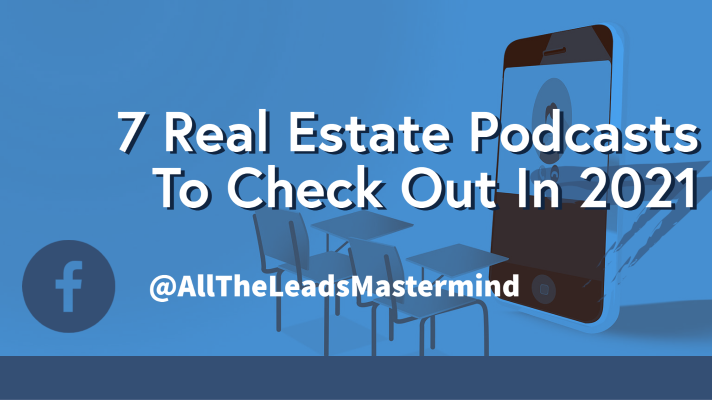
If you're looking to become a real estate agent in Illinois, there are many different options available to you. Online classes allow you the flexibility to take your training online and prepare for the state examination.
One of the most popular choices for obtaining your real estate license is to enroll in a real estate school in Illinois. These schools will help you understand the basics of real estate and prepare you for the state or national exams. Some of these schools also provide career support and other resources to help you succeed in your new career.
Some of the top real estate schools in illinois offer affordable pre-licensing courses for beginners. These courses can also be taken online, so students can go at their own pace. Live webinars are available for some of these courses, which allow students to interact directly with instructors.

Real Estate School of Illinois offers an online 75-hour course. This course includes dedicated customer service, instructor presentations, quizzes and exercises. They also offer a low cost guarantee. If they can match a lower price at an online real-estate school, they will match it.
These Illinois real estate courses are designed to be taken around your schedule, which is important when trying to work a full-time job and study for a career change. There are several course packages to choose from. These include a 15-hour residential licensing agent course and an optional 45-hour broker post licensing course.
Many people choose the CE Shop to get their Illinois real estate license. The CE Shop provides a variety of different online interactive real estate courses, which are all self-paced. You can choose from a variety of course options and earn your real estate license within three to six months.
The CE Shop also offers a 30 hour real estate broker post licensing course. The post licensing course covers everything from real estate law to property inspections.

Colibri Real Estate, another popular choice, is another option to obtain your Illinois real estate license. You can choose from two packages: The Basics ($339) and The Ultimate Learning Package ($629). These packages provide everything you need in order to begin your new career.
When you sign up for their pre-license programs, they offer a pass guarantee or your money back. You can even take their test prep master course to make sure you pass the state's real estate licensing exam on the first try.
There are many other schools that offer pre-license or post-licensing courses to real estate agents in Illinois. You can find the one that suits your needs. These schools will help you finish your realty license quickly and prepare you to take the state and national exams.
FAQ
How much money will I get for my home?
This varies greatly based on several factors, such as the condition of your home and the amount of time it has been on the market. The average selling price for a home in the US is $203,000, according to Zillow.com. This
How much money should I save before buying a house?
It depends on how long you plan to live there. You should start saving now if you plan to stay at least five years. But, if your goal is to move within the next two-years, you don’t have to be too concerned.
What are the chances of me getting a second mortgage.
Yes. However it is best to seek the advice of a professional to determine if you should apply. A second mortgage is often used to consolidate existing loans or to finance home improvement projects.
What are the most important aspects of buying a house?
Location, price and size are the three most important aspects to consider when purchasing any type of home. Location refers to where you want to live. Price refers to what you're willing to pay for the property. Size refers how much space you require.
What is a Reverse Mortgage?
Reverse mortgages are a way to borrow funds from your home, without having any equity. It allows you to borrow money from your home while still living in it. There are two types: conventional and government-insured (FHA). A conventional reverse mortgage requires that you repay the entire amount borrowed, plus an origination fee. FHA insurance covers repayments.
Statistics
- Private mortgage insurance may be required for conventional loans when the borrower puts less than 20% down.4 FHA loans are mortgage loans issued by private lenders and backed by the federal government. (investopedia.com)
- The FHA sets its desirable debt-to-income ratio at 43%. (fortunebuilders.com)
- When it came to buying a home in 2015, experts predicted that mortgage rates would surpass five percent, yet interest rates remained below four percent. (fortunebuilders.com)
- Based on your credit scores and other financial details, your lender offers you a 3.5% interest rate on loan. (investopedia.com)
- Over the past year, mortgage rates have hovered between 3.9 and 4.5 percent—a less significant increase. (fortunebuilders.com)
External Links
How To
How to Manage a Rent Property
Renting your home can be a great way to make extra money, but there's a lot to think about before you start. We'll show you what to consider when deciding whether to rent your home and give you tips on managing a rental property.
If you're considering renting out your home, here's everything you need to know to start.
-
What do I need to consider first? Take a look at your financial situation before you decide whether you want to rent your house. If you have outstanding debts like credit card bills or mortgage payment, you may find it difficult to pay someone else to stay in your home while that you're gone. Your budget should be reviewed - you may not have enough money to cover your monthly expenses like rent, utilities, insurance, and so on. You might find it not worth it.
-
How much does it cost for me to rent my house? There are many factors that influence the price you might charge for renting out your home. These factors include your location, the size of your home, its condition, and the season. Prices vary depending on where you live so it's important that you don't expect the same rates everywhere. The average market price for renting a one-bedroom flat in London is PS1,400 per month, according to Rightmove. This would translate into a total of PS2,800 per calendar year if you rented your entire home. That's not bad, but if you only wanted to let part of your home, you could probably earn significantly less.
-
Is it worth the risk? It's always risky to try something new. But if it gives you extra income, why not? Make sure that you fully understand the terms of any contract before you sign it. Renting your home won't just mean spending more time away from your family; you'll also need to keep up with maintenance costs, pay for repairs and keep the place clean. You should make sure that you have thoroughly considered all aspects before you sign on!
-
Are there any benefits? It's clear that renting out your home is expensive. But, you want to look at the potential benefits. There are plenty of reasons to rent out your home: you could use the money to pay off debt, invest in a holiday, save for a rainy day, or simply enjoy having a break from your everyday life. Whatever you choose, it's likely to be better than working every day. Renting could be a full-time career if you plan properly.
-
How can I find tenants? Once you decide that you want to rent out your property, it is important to properly market it. You can start by listing your property online on websites such as Rightmove and Zoopla. Once potential tenants reach out to you, schedule an interview. This will enable you to evaluate their suitability and verify that they are financially stable enough for you to rent your home.
-
How can I make sure I'm covered? You should make sure your home is fully insured against theft, fire, and damage. You will need insurance for your home. This can be done through your landlord directly or with an agent. Your landlord will likely require you to add them on as additional insured. This is to ensure that your property is covered for any damages you cause. If your landlord is not registered with UK insurers, or you are living abroad, this policy doesn't apply. In such cases you will need a registration with an international insurance.
-
If you work outside of your home, it might seem like you don't have enough money to spend hours looking for tenants. Your property should be advertised with professionalism. You should create a professional-looking website and post ads online, including in local newspapers and magazines. A complete application form will be required and references must be provided. While some people prefer to handle everything themselves, others hire agents who can take care of most of the legwork. In either case, be prepared to answer any questions that may arise during interviews.
-
What do I do when I find my tenant. If you have a current lease in place you'll need inform your tenant about changes, such moving dates. You may also negotiate terms such as length of stay and deposit. Remember that even though you will be paid at the end of your tenancy, you still have to pay utilities.
-
How do I collect the rent? When it comes to collecting the rent, you will need to confirm that the tenant has made their payments. If they haven't, remind them. You can subtract any outstanding rent payments before sending them a final check. If you're struggling to get hold of your tenant, you can always call the police. They won't normally evict someone unless there's been a breach of contract, but they can issue a warrant if necessary.
-
How can I avoid potential problems? Although renting your home is a lucrative venture, it is also important to be safe. You should install smoke alarms and carbon Monoxide detectors. Security cameras are also a good idea. You should also check that your neighbors' permissions allow you to leave your property unlocked at night and that you have adequate insurance. Finally, you should never let strangers into your house, even if they say they're moving in next door.